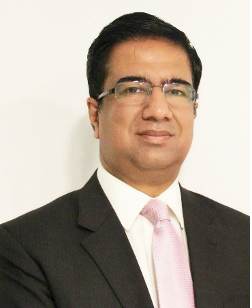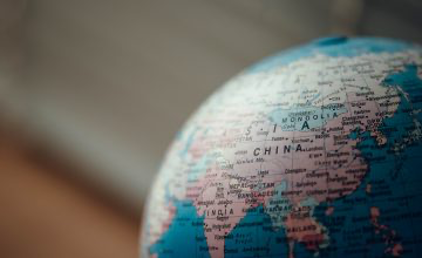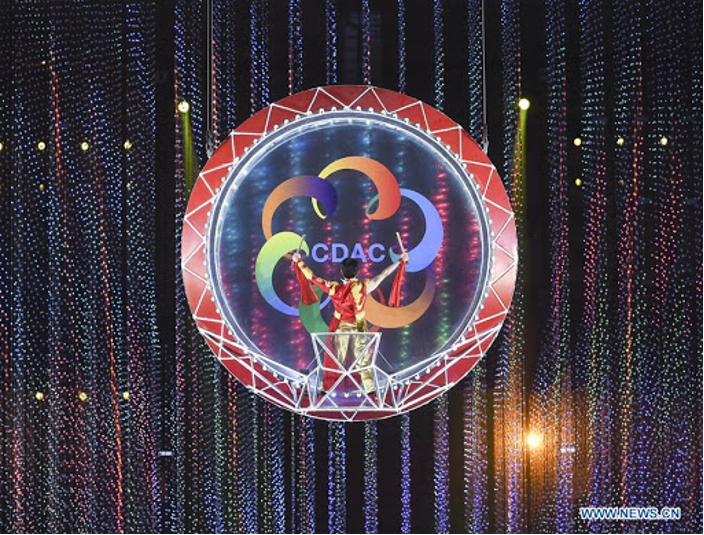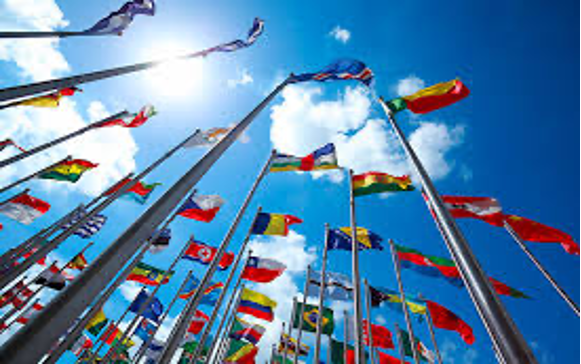
By Lieutenant Colonel Khalid Taimur Akram (Retd),
Director,
Pakistan Research Center for a Community with Shared Future
Civilization is a word that relates to the Latin word “civitas” or “city.” The most common definition of this word is “a society made up of cities.” But in the early development of the term, it was used as “civilized society” to differentiate between societies which were found to be culturally superior. In people’s daily lives, dialogues and conversation are a common process to interact. Presently, in this globalized world, the concern is not about swapping of ordinary thoughts or ideas in daily affairs but the process of comprehensive “dialogue among civilizations”. Which enables nations to understand and respect each other’s cultures and integrate for inclusive economic development. In the last decade, the occurrence of some significant global affairs would make the notion clear enough that humanity desperately needs dialogue to maintain peaceful co-existence and survive. In this regard, the role of China is pertinent to highlight. Beijing as an emerging superpower has been advocating this very idea of “dialogue of civilizations”. Which calls for a prosperous world, strong cultural ties, understanding each other through mutual accords, and dispute settlement via negotiations between the parties. The narrative answers how ancient civilizations can survive and thrive in the modern world.
Globalization and Dialogue of Civilization: Role of China

Since this idea is coined by President Xi Jinping, the international community is agreed on the view that lack of access is not the core issue but lack of understanding is. Recent time could be perceived as an era of “re-awaking and dialogue of civilization”. This re-awakening can be traced to counter and defy the proactive notion of “Clash of Civilization”. Which was given by Samuel P. Huntington, an American political scholar. He claimed that in the post-cold war era, the most intrinsic distinction among peoples will no longer surrounding by ideology, politics, or economy but culture. Hence, the future trends would be amid clashes between western and non-western civilizations. This thesis has ruled the international political stage for quite a long time. Because of its provoking nature and prejudice, trepidation persisted among the international society related to the world’s peace. Since the end of the cold war, it contained many obstacles between western and non-western countries.However, as the world is moving towards multipolarity, cultural diversity, economic globalization, and integration, the need for dialogue to find a global solution has become an increasingly important tool in the information orientation process. Furthermore, that modern pattern had also paved the way for the nations to respect each other civilizations and help in conflict resolution. Beijing is trying to put a massive effort into the process of global activism and constructive engagement. Therefore, inter-civilization communications would provide an ample amount of opportunities to cooperate in multiple dimensions in near future.
Conference on Dialogue of Asian Civilization (CDAC):
In 2019, Beijing hosted the conference on the dialogue of civilization. The event was attended by many state leaders, international organizations, and representatives of the cultural field. The focus of the discussion was on different dimensions. i.e. cultural diversity, patterns of negotiations, and ways to enhance people to people connections. This concept of dialogue of civilization has set the new trend in international relations and paved the way for mutual learning and cultural exchange.

Chinese President Mr. Xi Jinping shared his opinion at the conference:
“Civilizations don’t have to clash with each other: what is needed are the eyes to see the beauty in all civilizations. If countries choose to close doors and hide behind them, human civilizations would be cut off from each other and lose all vitality. We Asian people hope that will reject self-exclusion, embrace integration, uphold openness, and promote policy, infrastructure, trade, financial, and people to people connectivity”.
China has been advocating this narrative which reflects the positive stateman’s vision of Mr. Xi. Now, the world hopes to see a new boost of relations between the world’s societies based on more optimistic demeanors, mutual trust, and peaceful ways.
Role of Belt & Road Initiative (BRI) in Connecting Cultural Ties:

The Belt and Road Initiative (BRI) is a unique initiative at the global level which offers a plethora of opportunities for sustainable development across and within countries. It was crystallized by President Xi Jinping in 2013. The approach encapsulates the pillars of multiple national, sub-national, regional, and local economies. Profound and ambitious in its reach and scope to ensure complementary advantages, it has the potential to influence sustainable development outcomes. It links the entire Eurasian mega continent and its near and far periphery i.e. South East, South and West, Asia, Africa, Europe, and Latin America. Furthermore, BRI is more focused and aimed at upgrading and building the basic infrastructure. It has been given support by many states that led it to grow beyond the B&R boundaries to the world now. It includes various major sectors like projects of lands, maritime, infrastructure development, the building of corridors, trade, and financial investment, technological advancement, cultural exchange, and cooperation in the health sector. BRI passes through 80 countries that generate 40pc of the global gross domestic product (GDP) and account for 60pc of the world population. The energy sector is deemed as the largest beneficiary of this project that accounts for 75pc. The acceptance reflects the desire among the states to be a part of the Beijing successful model of economic development, cultural diversity, peace, and greater prosperity.
Moreover, China by its regional and economic connectivity projects i.e. BRI, its flagship project China-Pakistan-Economic Corridor (CPEC), building community with a shared future, Regional Comprehensive Economic Program (RCEP) and now a pioneer of the idea of Dialogue of Civilizations, is leaving no stone unturned in its great endeavors to associate the world. These established latest trends would build states' resilience to counter present and future perils through cooperation and sustainable policy mechanism. BRI has already been a successful project for global economic cooperation and development. It denotes the win-win approach for all the participant states. BRI is fruitfully accounting for prospects for open market development, building mutual trust, economic integration, and fostering cultural ties among nations. Due to the latest global and regional projects, new patterns of cooperation would emerge and it will add significantly in enhancing people to people contacts, robust diplomatic and commercial ties or further account in cultural exchange benefits.
Dialogue of Civilizations in Multipolar World: A Path Towards Multiplex and Multi-Civilizational World Order:
As the world is witnessing the emergence of new world order with multiple modernities or civilizational multipolar patter, the dialogue of civilization and regionalism could present a great model to counter the risks and add to the global peace process. In the post-cold war era, alignment of civilizational politics, multi-polarity, and multiple modernities have established new themes in international relations and global politics. All these updated themes are acting as a core tool to enhance the soft power. Through soft power, in which dialogue among civilizations is significant to highlight, will pave the way soon for integrated and coherent policy structures to cooperate. This new vision of civilizational politics would further frame trends of international politics. The connotations of cultural civilization are very clear, which plays a more pertinent role in the global ideological context as well. Having no ambiguity in it, various kinds of civilizational politics can be imagined. This is now food for thought which requires much more analytical study for every state on this subject to mend ways for future cooperation.
In a nutshell, all the evolving modern political values and transformed trends (civilizational politics-multiple modernities) in the world order have allowed countries to shed the orthodox notion of clashes of civilization and move towards a new trend established in international relations. i.e. resolve the clashes of civilization through dialogues and negotiation. That will subsequently, contribute to bringing everyone together and promote economic globalization which is beneficial for all.The concept of dialogue of civilizations has brought about enormous opportunities for the peaceful development of the world. In this aspect, international media, international organizations, research institutes, intellectuals, and academia can play an important role to bridge the cultural gap among countries. The process of dialogue provides a bigger picture. It is not an end, but it is a way of hope that later becomes the means to establish wisdom to counter future threats.
Dialogue of Civilizations: Building a Community with Shared Future
In a world that is burdened with ambiguity and instability, any civilization alone can not address the challenges common to all mankind. For the present world to be a world of peace, prosperity, development, growth, inclusiveness, and universal security, civilizations will have a fundamental role to play. The concept of “Dialogue of Civilizations: Building a Community with Shared Future” presents an opportunity for all the civilizations to come together at one platform and adopt a joint approach to address the concerns and challenges common to all.
In this regard, a renowned Chinese university i.e Communication University of China (CUC), Beijing has taken the initiative of creating a network of research centers for a community with a shared future. The research centers are created in collaboration with Pakistan, Tanzania, Ethiopia, Germany, Malaysia, and South Korea.
One of the research centers i.e Pakistan Research Center for a Community with Shared Future jointly established by the Communication University of China (CUC), Beijing, and the Center for Global & Strategic Studies (CGSS), Islamabad, Pakistan is actively advocating the concept of a community with shared future through the new idea of “Dialogue of Civilizations”. For this purpose, Pakistan Research Center has initiated prominent projects including an Online Internship Program, Conferences, Round Table Discussions, etc bringing together individuals from different backgrounds and teaching about commonalities.
The common aim of all the activities initiated by the Pakistan Research Center for a Community with Shared Future is to bring all the stakeholders together at one platform and advocate the idea of a community with a shared future through the development of “Universal Civilizations”. The idea can only be promoted as inclusive and integrated when an interaction between different civilizations is promoted. Through this initiative, numerous opportunities for inclusiveness are already being provided to different civilizations involved.
All the research centers including Pakistan Research Center for a Community with Shared Future, through their active contribution to the initiative, are laying the foundation for a better, united world.
